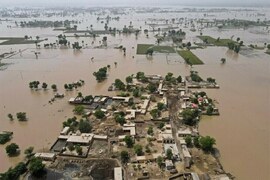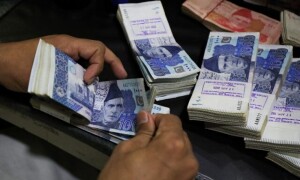Your lead editorial "Power Problems" (BR, January 11) again highlights the seriousness of the problems being faced by the power sector and the utter lack of planning, specially during the last six to seven years.
Asking WAPDA to continue "as usual", with rising costs of power purchases and fuel for own generation can only be termed as the normal ad hoc approach being followed generally. We have yet to see any proper action to control the rising subsidies without any workable solution. You have rightly explained that "Obviously, there is a limit to a strategy of self deception".
The difficult issue of providing "uninterrupted" power at affordable rates can only be tackled with a realisation that power generation has to be efficient and at standard costs as seen in other similar developing countries. Without energy conservation, we cannot allocate much-needed resources from other sectors to feed the energy guzzlers, now in increasing numbers!
As we wake up we find acute shortage of the main source of energy ie natural gas. This time, even Karachi is feeling the lowering of gas pressure as considerable amount of gas has been re-allocated to SNGPL from SSGC network to meet the crisis situation up north.
Firstly, we do not believe in energy conservation and both our industrial and commercial sectors waste enormous proportion of gas (of course, the residential sector is not too far behind in the race to waste).
And then we subsidise gas costs so that there is no incentive to save!
It is common knowledge that most industrial zones in the country generate power at a very low efficiency. It is estimated that about 40 % gas can be saved if the industrial zones produce power centrally in an efficient manner and sell at a reasonable cost to industries. If Sui gas could be conserved, maybe, we will not need to shut off gas supply to so many industrial units in winter.
The most important point to note is efficiency. We cannot afford to waste and yet, we see it happening all the time and everywhere. Main energy guzzlers, like steam power stations (Jamshoro, AES, Hub Power, KESC Bin Qasim Plant, ete) and large industries (cement and sugar to name a few) need to be re-designed in stages to become efficient.
Just for comparison, steam power stations can be convened to Combined Cycle Power Plant with 50 % extra power from the same gas supply! When are we going to wake-up to think about the country's future and stop this ad-hoe basis to pass time? Most of our industries and large commercial buildings are very inefficient when it comes to electrical and mechanical services and this has been going on for years, thanks to subsidised gas costs.
Now that gas costs have to rise, like oil, the industries are "lost". If we had the wisdom to announce pre-determined long time gas and power tariff philosophy (similar to what has been now done for auto industry), the industrialists would have invested on long term basis. First we invested billions in furnace oil power plant and then after discovering the high costs, we invested, again wrongly, in inefficient gas-fwed power plants. How can our country afford such experimentations?
Even now, we need to ensure compliance with minimum efficiency standards. In the past, such decisions have been taken at the highest level (ECC's decision one year back to only allow gas for either efficient combined cycle power stations or self generation on cogeneration design" was not followed and the result is that we have inefficient systems fix which we neither have the required gas nor can the industry bear the coming cost increase!
Wake-up call is urgently required to encourage efficiency to meet the inevitable energy crisis in the country.
BR100
15,235
Increased By
150.4 (1%)
BR30
44,824
Increased By
812 (1.85%)
KSE100
149,971
Increased By
1353.3 (0.91%)
KSE30
45,655
Increased By
407.2 (0.9%)






















Comments
Comments are closed.